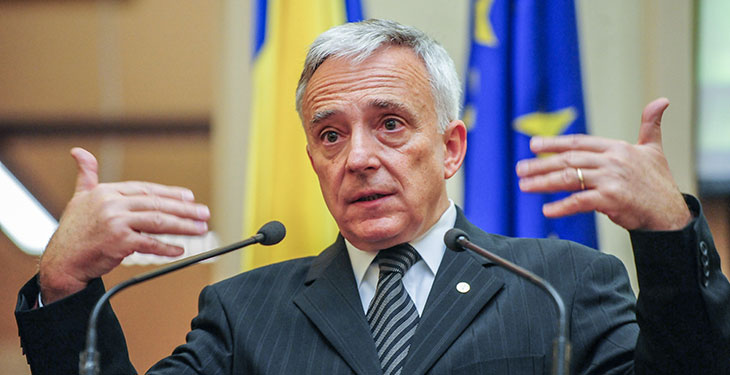The climate change agenda has a high stake for the Romanian economy and financial system, both in terms of opportunities and costs – should the green transition be delayed, said on Tuesday the governor of the National Bank of Romania, Mugur Isărescu, mentioning that this is the conclusion of the Working Group of the National Committee for Macroprudential Supervision (CNSM).
“The main conclusion of the analysis carried out by the members of the CNSM Working Group shows that the climate change agenda has a high stake for the Romanian economy and financial system, both in terms of opportunities and costs, in case the green transition will be delayed. The Group identified 16 proposals for recommendations in three areas: sustainably increasing access to finance for climate change projects, supporting structural change in the economy towards higher value-added, and improving transparency, reporting and the availability of information related to climate change, as well as raising awareness about the impact of climate change on society and the financial system,” Mugur Isarescu said, according to Agerpres.
The NBR governor said that new issues are beginning to be increasingly in the attention of central banks: recalibration of monetary policy strategies, the impact of climate change and digitalization on the economy, digital currencies and assets, promoting diversity and sustainability. Isărescu stated that they are not yet treated equally, neither in universities, nor in specialized circles. Moreover, controversies in these areas are often heated. Their monitoring, in this phase, requires relatively new expertise, consisting of walking, diverse experience and multidisciplinary teams that include, together with specialists in economics and finance, people with knowledge and experience in other fields.
Mugur Isărescu said that the subject of climate change is too complex and controversial to be covered by a single entity. He noted that a recent example is edifying: disputes over the role of central banks in the fight against the counterbalance of climate change. These were highlighted and can be seen from the “Green Swan” virtual conference organized by the Bank for International Settlements, on Friday, June 4, 2021.
The governor said that while Fed chairman Jerome Powell argued that a central bank must remain within its mandate to maintain price stability and that it could not establish a policy to combat climate change, this role being fulfilled by to governments and elected officials, Christine Lagarde, president of the European Central Bank, insisted that central banks cannot fully fulfill their inflation control mandate unless they are heavily involved in the issues raised by climate change.
Isărescu said that, beyond these differences of opinion, a consensual core is emerging, especially at EU level, namely that although central banks do not play a leading role in the climate change agenda nor can they replace fiscal or industrial policies, they can contribute significantly from many perspectives: raising awareness in society about the implications of climate change, better transparency, supporting green funding, risk assessment and a few other areas that appear to have been clarified as consensual.
“What is our choice, at the NBR? For the time being we have decided to follow carefully and analyze these developments, especially within the newly created structures, and the Board of Directors has decided to form some new structures. I remind you that a first climate risk assessment was carried out in 2019, by identifying the economic sectors that may be affected and assessing their role for the financial system. The results were disseminated through our publications, the Financial Stability Report, the December 2019 edition, and the 2019 Annual Report,” the NBR chief said.
In addition, in September 2020, the BNR joined the Network for Greening the Financial System (NGFS) of central banks and financial supervisors. At the same time, the BNR facilitated the debates on climate change, this being a main topic in the annual seminar on financial stability, organized together with the International Monetary Fund in 2019, in Bucharest.
